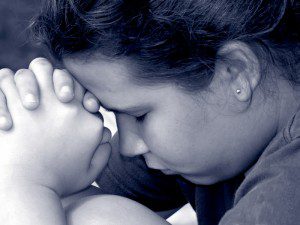
Calls for prayer pop up immediately.
Everybody’s “thoughts and prayers” are posted in public places. Churches open with prayer services advertised. Religious leaders offer statements to be read in worship. Legislative bodies routinely practice their mandatory moment of silence. Citizens gather in civic spaces for ecumenical prayer. During Sunday worship, many if not most churches will mention the latest shooting/terrorist/police-related tragedy in their times of prayer.
And then what? Most who have prayed, or who mentioned “thoughts and prayers” will just return to their usual pursuits, feeling justified that they have done their part. Lives are busy, concerns press on every side. No more energy available for other actions.
What a waste.
Every one of these tragedies exposes a deep societal festering and infecting sickness. I am coming more and more to the conclusion that the problem is primarily economic, not spiritual. Prayer is not going to fix this, as good as it may make us feel. There are basic needs that are not being met. Without dealing with those, there is no space for the luxury of spiritual development.
I recently came across a fascinating utility put out by MIT called the “living wage calculator.” The creators have set up a series of charts setting out how much various family groupings must bring in per year to live without desperation.
They made, to me, a set of fascinating assumptions.
- One: families will select lowest cost foods and ALL meals and snacks are prepared at home.
- Two: Child-care costs must be the lowest available in the area.
- Three: Housing costs use HUD fair market rent estimates. Since those estimates tend to be lower than most of the cost of rental units in given areas, housing will be hard to come by within those estimations and may not be available as lower cost units fill quickly.
- Four: Employer-sponsored health insurance plans, harder and harder to come by.
- Five: Cars/trucks have been bought used. Although allowance for other vehicle expenses is included, I don’t know if that means space for often expensive repairs on significantly older vehicles.
- Six: This budgeting process does include space for clothing, housekeeping supplies and other personal care items (note that housekeeping and personal care items cannot be purchased using SNAP, Supplemental Nutritional Assistance Program, leaving the poorest of the poor without some absolute basics for healthy living.
- Seven: A forty hour work week, 52 weeks a year. Underlying this assumption is that no one will get sick. Ever.
- Eight: There will be no purchases of expensive household times like appliances or computers. No vacations. No other recreation time.
- Nine: absolutely no provision for charitable giving.













